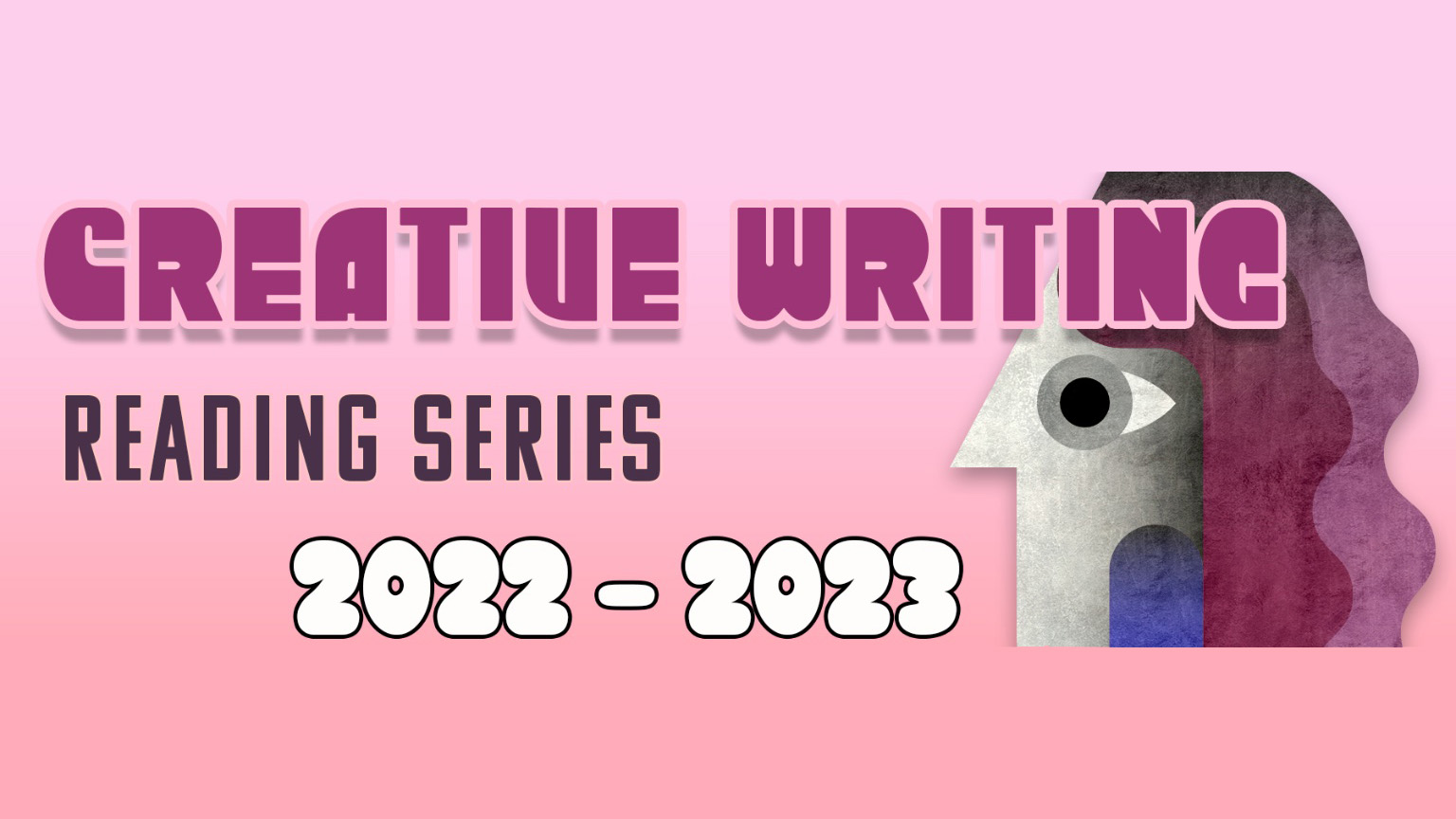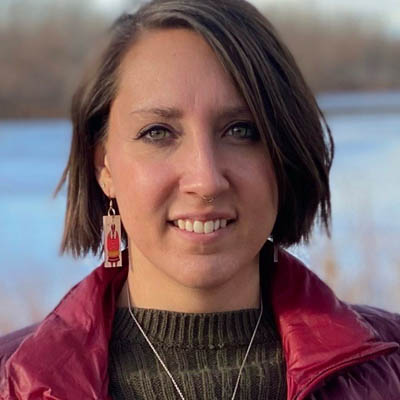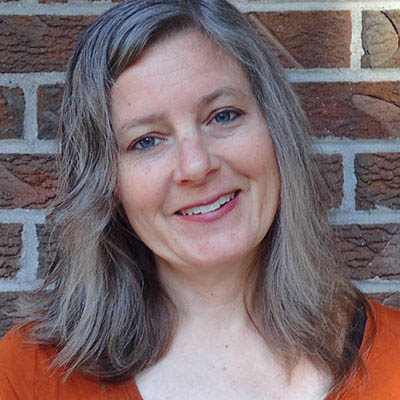
Colorado State University MFA alums Abigail Chabitnoy (’16) and Emily Wortman-Wunder (’03) will step back on campus Thursday, Feb. 2, to read from their own works during the Mary Crow Alumni Reading event.
The event starts at 7:30 p.m. in Lory Student Center room 312.
In anticipation of their arrival, Chabitnoy and Wortman-Wunder shared how their CSU degrees influenced their writing lives, offered advice to current students and more.
How has your time in the MFA program at CSU shown up in your current writing life and teaching career?
AC: The biggest and most obvious impact the MFA program at CSU has had on my current writing life is simply on my writing itself. When I was deciding between MFA programs, what drew me to CSU was the sense that the professors there were going to challenge me to push my work, to consider sound and line and the possibility of what a poem could achieve.
I had a feeling I was going to be asked to look at my work honestly and critically – and I was. The way lyric and story weave through my work, its emphasis on asking questions over finding answers, its willingness to dwell in uncertainty and fluid potential, these qualities of my work developed during my time at CSU. While I didn’t teach as much as some of my cohort at CSU, the conversations I grew to expect and learned to participate in as part of the work of engaging earnestly with poetry prepared me to enter my own classroom with an objective of collaboration and discovery no matter how long I’ve been teaching.
EWW: My time at CSU was critical for my development as a writer — before, I didn’t really think of myself as a writer (I worked in a genetics lab). I didn’t know how to finish pieces, and I lacked confidence in my own voice. The MFA work changed all of that. My work at the CSU Writing Center changed the direction of my life as well — while there, I got slotted into working with scientists (because of the genetic lab), and I ended up doing editing and grant writing work for a professor on campus. This led to work after I graduated, then to my job as a technical editor and finally to my current career, which is an instructor of scientific writing.
What are you thinking about and working on right now?
AC: Right now, I’m really focusing on settling in as an assistant professor in the MFA program and Native American Indigenous Studies certificate program at UMass, where I started teaching this fall.
The release of my second book this past fall has made it possible for me to give my creative work somewhat of a grace period while I also settle in as a mother to my 10-month-old daughter while ensuring the four-footed members of my family still feel the love.
But I’m never not “working” so to speak.
Before moving to Massachusetts, I was getting involved with linocut block prints and the possibility of working with illustrated poems in some capacity. I hope to get back to that, but am currently working in a more fragmentary mode, dictating lines on the way to campus or typing them on my phone at 2 a.m. after the baby’s woken me, and I can’t fall back asleep.
I usually have a couple pots on the stove at a time, which has helped me stay connected to my work, though it’s still very early in the shape-taking stage. I expect my third book will either by some manner of fragmentary epic, attempting to bridge both short- and long-form poetics in the same space. I’m thinking about family, about what we carry from one generation to the next, what we owe to our family, of community responsibility versus individual rights, and as much as I try not to (with or without a little one, how does anyone not), what possibilities we might manifest and be at the mercy of in a future increasingly looking like one on decline.
EWW: I just finished a novel, tentatively titled Terrain Vague, and I am reveling in the freedom of not working on it. Right now, that means working on numerous smaller pieces — short stories and essays.
When returning to campus, what makes your must-do list?
AC: If I had more time, definitely the mountains and the bike trails. But living in Western Mass, I mostly miss the food, like Torchy’s Tacos, Lucille’s, Copper Muse and Pinball Jones (not for the food). Also, Odell’s when the weather’s nice. And of course, the people. We made some of our closest friends in Fort Collins. Definitely the best neighbors we’ve ever had.
EWW: My biggest must-do for visiting campus is to check in with my son, who is currently a student here. I might also do a drive by of some of the places where I’ve lived.
Best piece of writing advice you’d offer current students?
AC: Lean into your obsessions and see where they lead. You’ll either write your way out of it to something new or into undiscovered corners you didn’t expect. And if you feel like you’re not writing, or can’t, read. Poetry is an art of attention, so no time or experience is really wasted if you’re present — even if you don’t land where you expected.
EWW: I’m not sure if this is “best,” but know that the time after the MFA can be hard — it’s hard to find community and it’s hard to keep writing. Do it anyway, though, and know that this is the struggle that will give you your real voice.
About the authors


CSU alums Abigail Chabitnoy (left) and Emily Wortman-Wunder will be returning to campus to participate in the Creative Writing Reading Series.
Abigail Chabitnoy
Abigail Chabitnoy is the author of In the Current Where Drowning Is Beautiful, the lino-cut illustrated chapbook Converging Lines of Light and How to Dress a Fish, the winner of the 2020 Colorado Book Award for Poetry and member of the shortlist in the international category of the 2020 Griffin Prize for Poetry. Chabitnoy is a mentor for the Institute of American Indian Arts MFA in Creative Writing and an assistant professor at UMass Amherst. She is a Koniag descendant and a member of the Tangirnaq Native Village in Kodiak.
Emily Wortman-Wunder
Emily Wortman-Wunder is an essayist and fiction writer, with recent work in the Kenyon Review, Creative Nonfiction, Nimrod, High Country News and elsewhere. Not a Thing to Comfort You, winner of the Iowa Short Fiction Award, is her first book. She teaches scientific writing at the University of Colorado Denver.
About the Creative Writing Reading Series
Each fall and spring semester at Colorado State University, the Department of English welcomes distinguished literary voices to share their work and engage with the local community. Visiting writers hold audience question-and-answer sessions, book signings, other outreach activities, and salons.
The CSU Creative Writing Reading Series is made possible by the Organization of Graduate Student Writers, the CSU Department of English, the College of Liberal Arts, CSU Libraries, the Lilla B. Morgan Memorial Endowment, the donor sponsor of the Crow-Tremblay Alumni Reading Series and other generous support. Learn about how you can support the series online here.